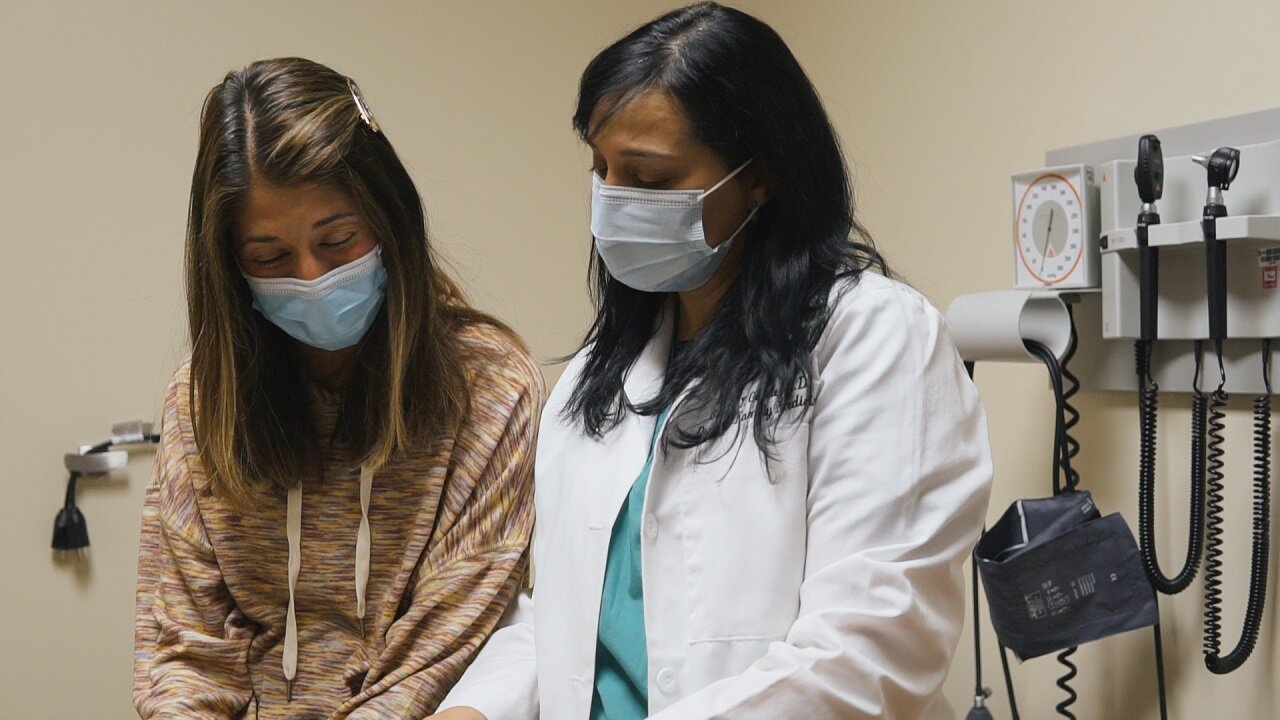Doctor uses personal journey to encourage others to get cancer screenings

WHEAT RIDGE, Colo. — According to the American Cancer Society, more than 280,000 women are expected to be diagnosed with breast cancer in 2021. Dr. Savita Ginde thought she might be one of them.
“Through my personal journey it went from mammogram to additional imagining, biopsy, MRI, lumpectomy. A whole journey across six months,” says Dr. Ginde, the Chief Healthcare Officer at Stride Community Health Centers, as well as a practicing family physician with a focus on gynecological care.
Her current health care journey began in March of 2021, when a routine mammogram detected a "suspicious and concerning lesion" in her breast.
As a doctor who regularly provides mammograms for patients, Ginde understands the importance of preventative screenings, even if there is seemingly nothing out of the ordinary.
“I wasn’t having any lumps or bumps or anything that made me go in, other than knowing that it’s an important part of maintaining my health to get that screening and mammogram,” Ginde says.
She is grateful she did. Although a biopsy confirmed that she did not have cancer, the lesion “increases my risk of getting breast cancer in the next 10 or 20 years multifold,” Ginde explains.
After consulting her care team, Ginde made the difficult decision to undergo a double mastectomy with reconstruction to mitigate her risk of being diagnosed with breast cancer in the future.
“Had I delayed care, I could be in a situation where I have to get the mastectomy because I have cancer,” Ginde says. “I may then have chemotherapy, it may involve radiation. Again, it’s that preventative aspect of it, getting the screening done and being able to drive my destiny.”

Now, Ginde uses her diagnosis as a launching pad to encourage others to get any preventative health screenings they may have skipped during COVID-19 lockdowns. “When COVID hit, practices shut down, people had to stay at home for safety reasons. I think people just really skipped or weren’t able to access the usual and routine care that they get,” says Ginde.
According to a recent study in JAMA Oncology, more than nine million cancer screenings were skipped or delayed during the pandemic, and screenings for breast cancer have dropped 50 percent compared to pre-COVID times. The Centers for Disease Control published these guidelines which recommend women who are 50 years old or older with average risk for breast cancer should get a mammogram once every two years.
Ginde emphasizes, “It’s super important that if someone hasn’t gotten their mammogram and needs one that now is the time more than ever to get it done.”
October is National Breast Cancer Awareness Month, an annual campaign to raise awareness about the impact of breast cancer. You can read more information about breast cancer and donate at the National Breast Cancer Foundation website.
Alexis Kikoen is a multimedia journalist with Rocky Mountain PBS. She can be reached via email at alexiskikoen@rmpbs.org or on Instagram @alexiskikoen.
